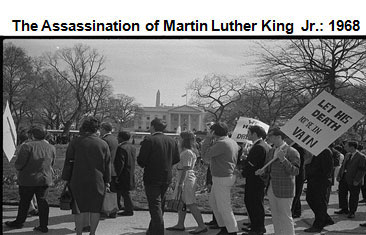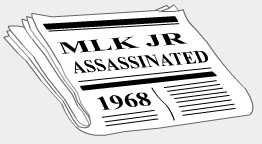
There have always been citizens in the United States who have fought for equal rights. Various periods of the history of the United States have been marked by the fight for equality but none like the turbulent time of the 1960s.
There were many social and political changes made during this decade. African Americans, primarily in the southern states, continued to be segregated and oppressed. Civil rights activists began the tough, violent, and sometimes deadly task of fighting to ensure that African Americans and all citizens secured the equal rights entitled to them as citizens of the United States.

From this movement emerged a leader, Martin Luther King Jr. King was able to galvanize African Americans and lead them in a nonviolent movement for equal rights. The movement gained momentum under his leadership through protests, marches, and political action. The civil rights movement gained national and international attention.
One of the most famous events led by Martin Luther King Jr. was the March on Washington. On August 28, 1963, more than 200,000 people showed up for the March on Washington for Jobs and Freedom, which was organized by several civil rights groups. At the end of the march, Martin Luther King Jr. made his memorable “I Have a Dream” speech.
Click on the link below to watch more about the March on Washington.
The March on Washington garnered more attention and support for the plight of those involved in the civil rights movement. The Civil Rights Act of 1964, one of the most important civil rights acts ever written, was passed. In 1965, the Voting Rights Act was also passed.
Martin Luther King Jr. continued to fight for the rights of African Americans. He also began working on other issues such as equal access for all of America’s poor and issues surrounding the Vietnam War. Just as his work began impacting more segments of the American population, his life was cut short.
Sadly, on April 4, 1968, Martin Luther King Jr. was assassinated on the balcony of a Memphis hotel. He had traveled to Memphis to help with the sanitation workers' strike.

Turning Point: The assassination of Martin Luther King Jr. immediately sparked an outbreak of riots across the nation. Many African Americans were outraged at his death, but some were even more inspired to continue to do the work that King had started. His death also brought more support to the civil rights movement in the political arena. As the nation mourned, President Lyndon B. Johnson called on Congress to pass the civil rights legislation that was before the House of Representatives at that time. The result was the passage of the Civil Rights Act of 1968.